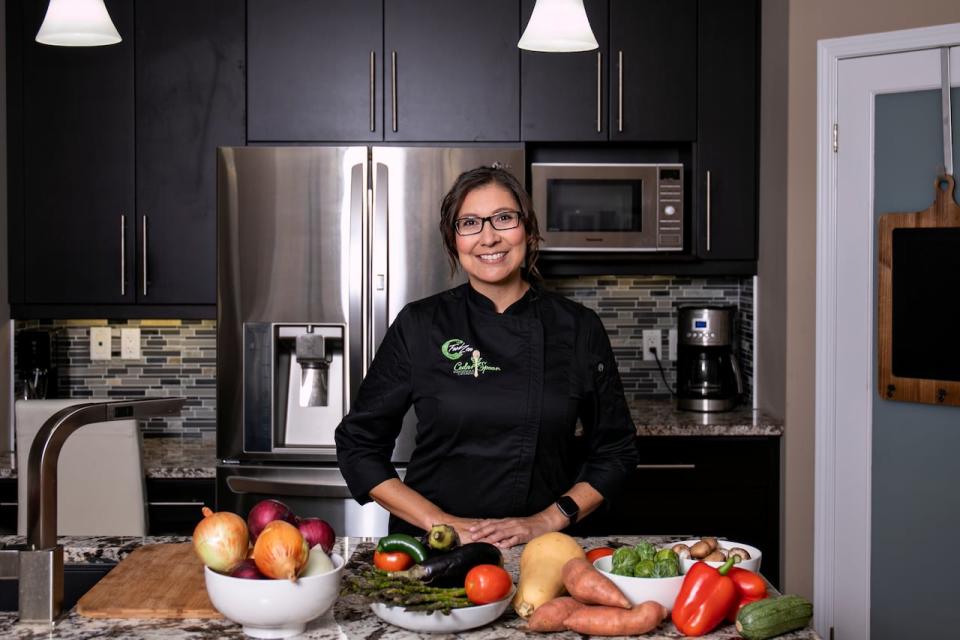Chef Destiny Moser connects to her Indigenous roots through food: Jasmine Mangalaseril
Kitchener Chef Destiny Moser always knew she was Ojibwe, but only in the past few years has she begun to understand what that means.
"I didn't really know ... what it meant to be Indigenous," said Moser. "It's almost like I had forgotten and now I'm just remembering."
In reconnecting with her own Indigenous identity, Moser is helping others do the same.
When European settlers took control of North American land and waters, many Indigenous people lost their traditional knowledge and connections to their culture along with their traditional foods. For Indigenous groups, food is more than nourishment, it's integral to cultural values, celebrations, health and well-being.
Moser's mother was part of the '60s Scoop. As a small child, she was removed from her Rainy River First Nations community. While she was eventually adopted by a loving, local farming family, cultural identity wasn't considered important, so the teachings her mother would have received back home weren't received here.
A bigger purpose
A few years ago, Chef Moser left the tech sector to become a personal chef. While she was already getting familiar with the local Indigenous community, the discovery of unmarked residential school graves motivated her to look into her Indigenous roots.
"I started to really think maybe there's a bigger purpose for me," said Moser. "There are only two or three other Indigenous chefs in the region, and I realized there's this need for the rise of Indigenous food."

Her grandparents instilled in her the importance of local, seasonal, farm-to-table eating. But she began to realize many of those settler foods and the way that they're grown contrasted with traditional Indigenous ways.
Indigenous trade routes brought foods here from across the Americas. In order to cultivate them here, Indigenous groups developed farming techniques that didn't damage the environment.
"When we started trading corn with the Indigenous people of Mexico, we needed to figure out how to make it thrive. So, by planting beans with the corn, the beans were able to feed the nitrate to the corn so that it could thrive," Moser explained.
Availability of traditional foods
Moser also learned how development and regulation impacts the availability of traditional foods.
"Our meats, for the most part, are considered exotic. The only Indigenous meat that's not considered exotic would be fish, duck, and rabbit because those existed in other parts of the world. So it wasn't strange, it wasn't new," she said.
Urban Indigenous people face barriers to accessing traditional foods that those living in reserve-based communities don't.
"If we were living on the reserve, all of a sudden it's much easier for me to go and get venison or moose because they don't have the same rules that we do," explained Moser.
She needs to source wild rice from areas north of us or Quebec, because local fresh waters are polluted making traditional growing areas inaccessible.
Reconnecting to culture
Some indigenous foods like tomatoes, beans, and peppers are mainstream, appearing in global cuisines. But for some who've never had traditional ingredients in dishes, it can be a revelatory experience, as it was for Moser when she first tried venison stew.
"It was like, 'Oh yeah. This is normal. This is something we're supposed to have.' It's very cool that immediately my taste buds felt the recognition, even though I had never had it before," recalled Moser.
Moser often works with Indigenous associations, preparing meals and giving talks about traditional foods. By sharing what she's learned she's helping others get familiar with and better understand their culture.
"The food's always been around. We just haven't necessarily had the access to it. And I think the more we talk about it and the more we educate people and get as many people out trying the food, the better it is for everyone."

